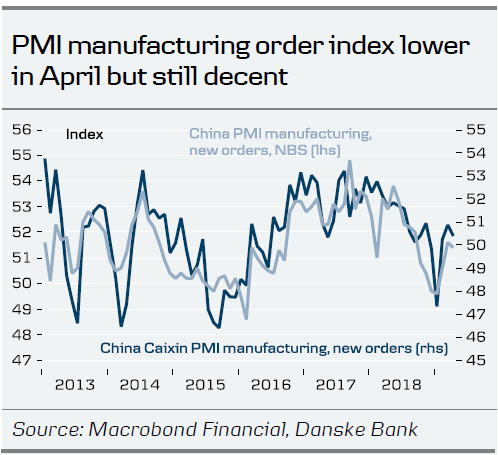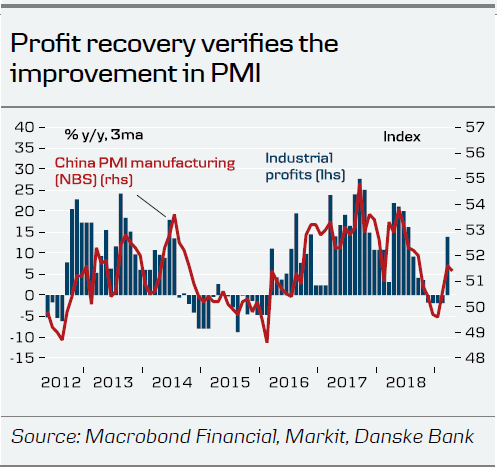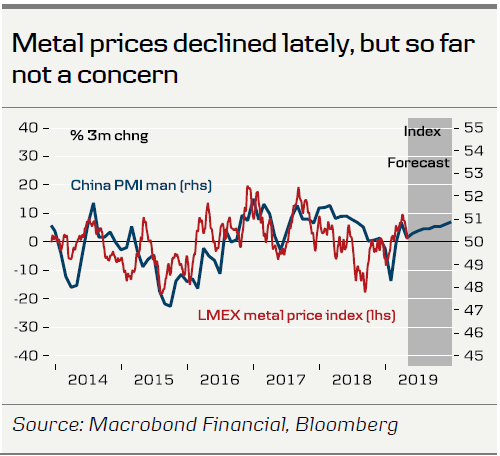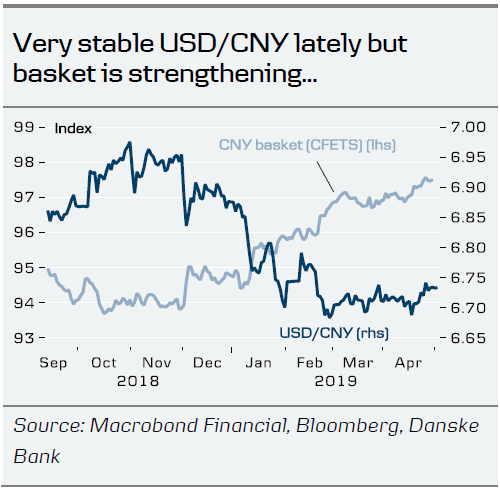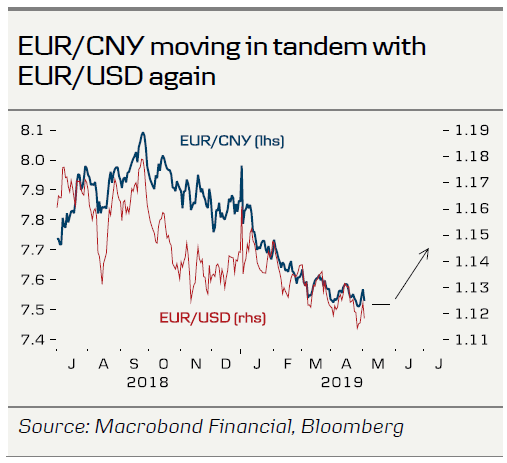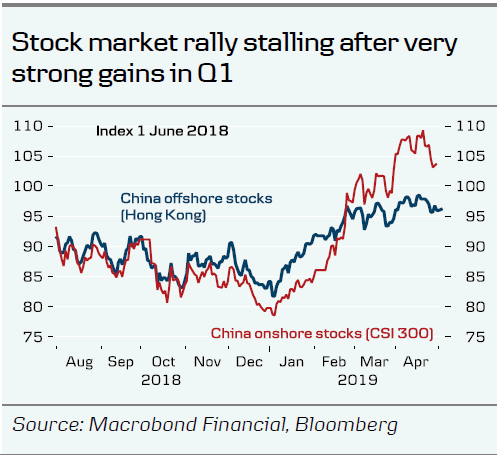- If everything goes right we expect to see a trade deal by the end of next week.
- Economic data are still in line with a moderate recovery.
- USD/CNY is stable ahead of the trade war endgame, EUR/CNY is lower on USD strength.
75% chance of Xi-Trump summit announcement next week
This week the US and China continued trade talks in Beijing ahead of what both sides hope to be the endgame in Washington. The goal is to close a deal by the end of next week and announce a signing summit between Chinese President Xi Jinping and US President Donald Trump to be held later this month or in early June . Politico/SCMP wrote that ‘Trump’s increasing desire to strike a quick agreement could result in a deal in principle announced by the end of next week, according to several people close to the discussions’.
The two sides kept their cards close to their chests after the latest round of talks in Beijing, providing few details on the talks (see Global Times , 2 May). This led to some speculation that the talks might be reaching an impasse. However, US Treasury Secretary Stephen Mnuchin continued to call the talks ‘productive’ when he left Beijing this week (see Reuters , 1 May).
The Politico article also reported that the US will not get China to roll back subsidies as much as it would like to . The Head of International Affairs of the US Chamber of Commerce Myron Brilliant said during a call with reporters, ‘I’m not sure we’re going to get all the progress we want’ but that the Chamber was ‘sanguine’ about the progress made on subsidies.
Comment: We see a 75% probability that a signing meeting between Trump and Xi will be announced at the end of the talks next week , probably by Trump himself in the Oval office. The two sides seem to have agreed on 95% of the content and, although a few difficult issues are left, we very much doubt that Trump will walk away from a deal . It would be too costly in terms of falling stock markets and economic uncertainty and Trump would miss out on important gifts to voters in key swing states such as Iowa (agriculture) and Michigan (auto industry). The 2020 election campaign is increasingly gaining steam and Trump needs all the tailwind he can get from the economy and stock markets to go after re-election.
We cannot rule out the two sides failing to reach a deal in Washington next week but, in our view, this would be likely to trigger a big decline in stock markets, which would put pressure on the two sides to get back at the negotiating table and get the deal done.
Softer April PMI but no need to despair
As we warned in China Weekly Letter – Xi to visit White House ‘soon’, data confirm recovery , 26 April, April PMI turned out to be a disappointment. After a surge in March, both the official version and the Caixin PMI manufacturing fell back in April (see Flash Comment China – PMI lower but moderate recovery on track , 30 April). On a more positive note, profit growth for March rebounded to 13% y/y, verifying that the economy turned better in Q1.
Encouraging news also came to the surface in the housing market, where the CRIC home sales of 100 developers pointed to a strong rise in home sales in April (see SCMP, 1 May). CRIC also reported an increase in land sales. Another gauge of economic activity we follow closely is metal prices. These have turned a bit lower this week.
Comment: While April PMI disappointed, this came after very strong March data and we still see the development as in line with a moderate recovery (see China Leading Indicators – moderate recovery still on track, 2 May). Stronger home sales reflect the easing of monetary policy and we expect to see a further gradual improvement in housing this year. It is encouraging to see the reports of rising land sales, as the official data has been quite weak lately. We intend to keep a close eye on metal prices. While the decline this week is not yet enough to be a real concern, we would not like to see metal prices fall much further from here. This it would place uncertainty on the Chinese recovery.
USD/CNY very stable as trade talks reach the endgame
Chinese leaders seem keen on keeping USD/CNY stable in order to provide a good climate for the trade talks. As the USD has been strengthening on an overall basis, it also means that the trade-weighted CNY basket has strengthened. This has been reflected in lower EUR/CNY, which has resumed trading with a very high correlation to EUR/USD (see chart).
Comment: As long as the downward pressure on EUR/USD persists, we expect the same to be the case for EUR/CNY, so a stronger CNY. However, we still forecast EUR/USD will move higher later this year, which should pave the way for an increase in EUR/CNY as well. Our forecast for EUR/CNY in 12 months is thus still 7.72, an increase from the current level of 7.51. For USD/CNY, we expect stability to continue but believe that a trade deal and Chinese recovery will push it lower to 6.60 in 12 months.
Other selected China news of the week
The onshore stock market corrected lower this week. The equity market rally has stalled lately following very strong gains in Q1 and we believe stocks will be choppy for a while before moving higher again later this year.
China announced further easing of rules for foreign banks and insurers (see SCMP, 1 May). The new rules remove existing caps on both foreign and domestic investments in local commercial banks. This is yet another step in China’s gradual opening up.
Apple iPhone sales in China picked up towards the end of the fiscal second quarter (see Reuters, 30 April). The rise came after Apple slashed prices but it may also be a sign that Chinese consumers are spending more following household tax cuts and of lower uncertainty related to the trade war. The Apple stock rallied on the news and the California company regained the spot as the most valuable company in the world, pushing Microsoft off the throne again.
Former Chairman of Morgan Stanley Asia Stephen Roach wrote an interesting piece in Project Syndicateon ‘America’s false narrative on China’, 26 April. He argues that Washington ‘has been loose with facts, analysis and conclusions about China’.
On Sunday, Chinese President Xi Jinping proposed a five-point initiative on promoting green development at a ceremony in Beijing. He said industrialisation had created unprecedented material wealth but caused serious ecological damage. He said, ‘We should pursue prosperity based on green development’ (see China Daily, 28 April).

